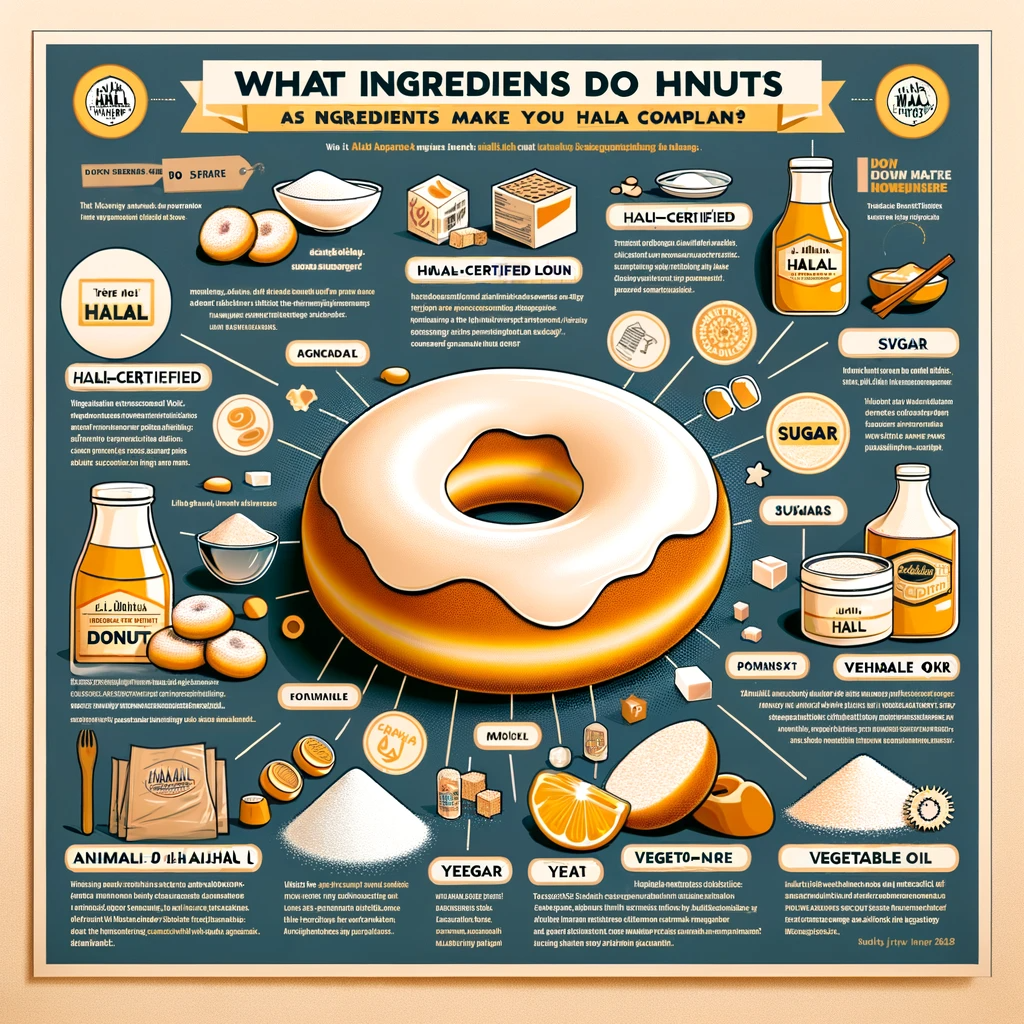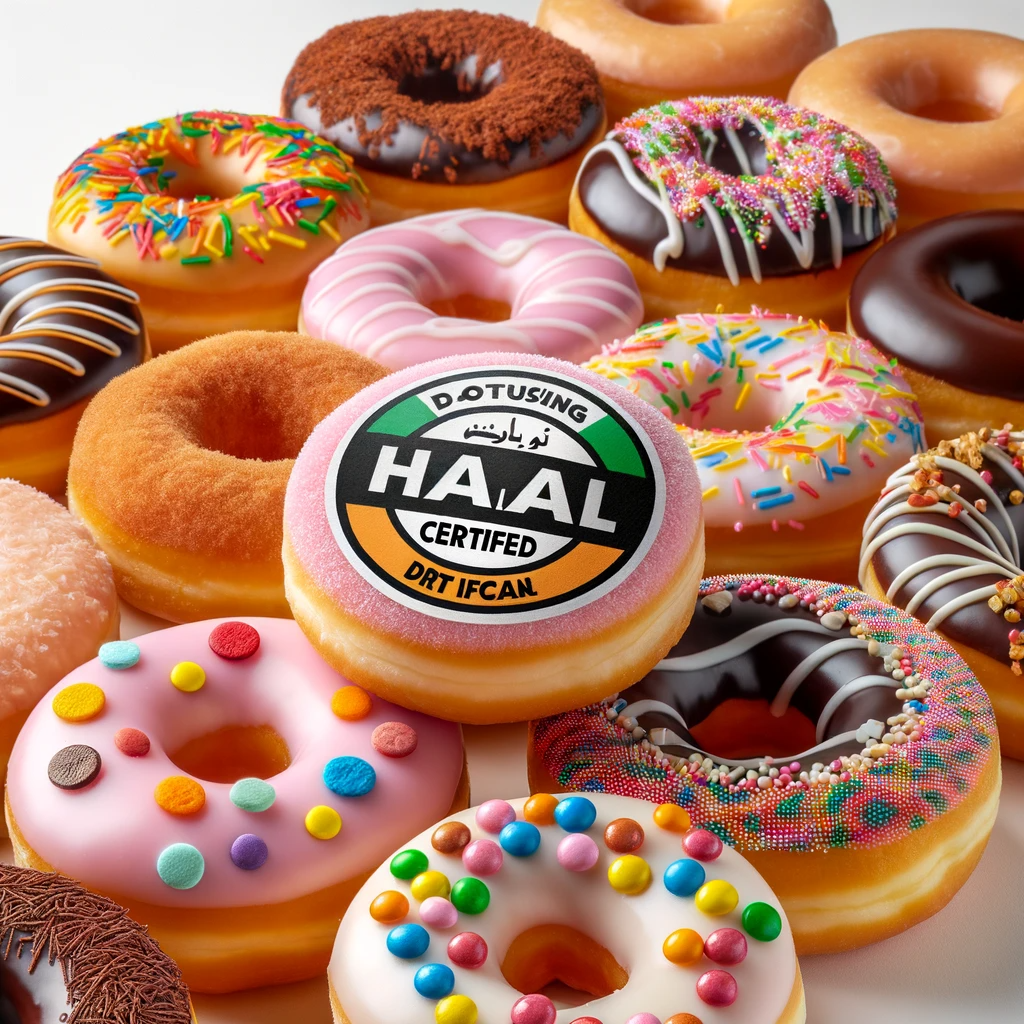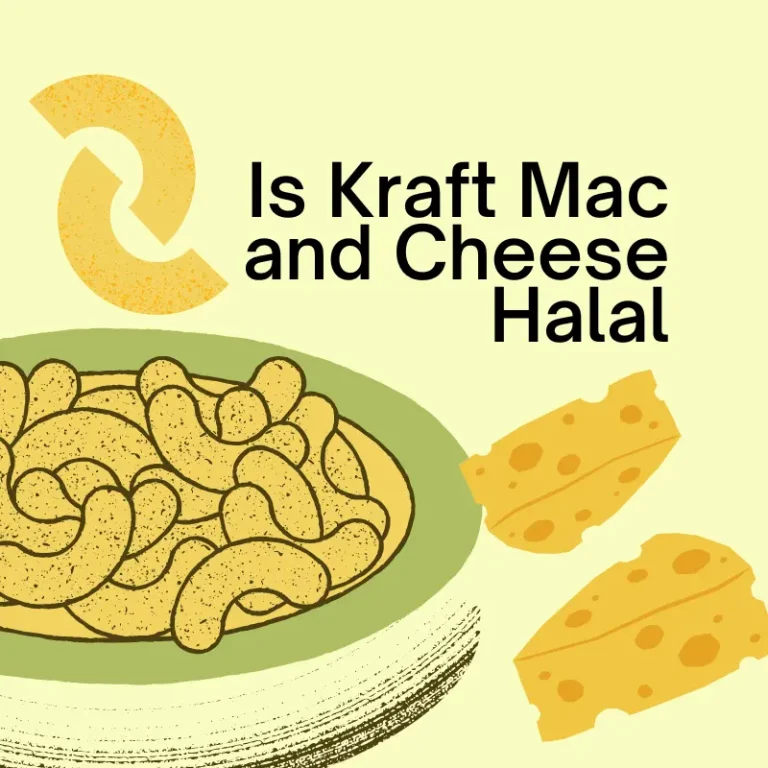Are Donuts Halal?
Eating halal is an important part of life for Muslims. With donuts being a popular food, many Muslims wonder, are donuts halal?
As an Islamic scholar and halal food expert with over 10 years of experience, I have extensively researched this topic. In this definitive guide, I will cover:
- What makes food halal or haram
- Ingredients in donuts
- How donuts are cooked and prepared
- Types of donuts and halal status
- Finding halal certified donuts
I will use my expertise to take a detailed look at each of these key areas to answer the question from an Islamic dietary law perspective – are donuts halal?
What Makes Food Halal or Haram
The main aspects that determine if food is halal involve the ingredients and how it is processed and prepared. These include:
- Ingredients: All ingredients must come from halal slaughtered animals or vegetarian/plant sources according to Islamic law
- Alcohol: Food must not contain or be prepared with alcohol or other forbidden intoxicants
- Pork Products: Food must not contain pork or pork by-products
- Safety and Hygiene: Food must be safe and prepared hygienically according to health standards
- Slaughtering of Animals: Any meat must come from animals slaughtered according to Islamic zabiha guidelines
As long as no haram ingredients or alcohol are used, the processing equipment is thoroughly cleaned, and standards for purity, quality, safety and wholesomeness are met, foods can be certified as halal.
Now let’s take a detailed look at donut ingredients and preparation methods to determine if they meet these halal requirements.
Donut Ingredients
Donuts consist of ingredients falling into two categories which impact their halal status:
1. Dough Ingredients
- Flour – Typically wheat flour which is halal
- Yeast – Halal leavening agent
- Eggs – Must come from halal certified suppliers for halal donuts
- Milk – Must also come from halal certified suppliers
- Water
- Sugar or other sweeteners – Should be halal suitable types
As long as these ingredients come from halal sources, the donut base of flour, yeast, eggs, milk meets Islamic dietary regulations.
2. Additional Fillings and Toppings
Many donuts come with a range of fillings or toppings, including:
- Cream fillings – dairy or vegetable oil based
- Fruit fillings like strawberry or blueberry
- Frostings and icings – sugar, butter, or oil based
- Sprinkles or decorations
- Glazes and drizzles
- Nuts like peanuts or almonds
The halal suitability depends on the specific ingredients used in these additions. As long as they avoid alcohol, pork by-products and use certified halal sources, toppings and fillings can also meet Islamic guidelines.
Donut Preparation and Cooking Methods
 In addition to halal ingredients, the way donuts are prepared and cooked is also essential for them to be halal:
In addition to halal ingredients, the way donuts are prepared and cooked is also essential for them to be halal:
- Frying Oil – Vegetable/plant-based oils only, must not contain any alcohol or pork fat/lard
- Equipment – Must avoid cross-contamination from non-halal products like pork
- Processing Aids – Any additives or processing aids used must also be halal suitable
- Packaging – Should not contain traces of alcohol or pork products
- Hygiene & Handling – Must follow food safety and hygiene guidelines of health authorities
As long as donut suppliers take measures to avoid alcohol and pork cross-contamination and use food grade vegetable oils for frying, the cooking method does not pose any halal issues. Proper hygienic preparation and packaging also ensures donut safety and purity as per halal regulations.
Types of Donuts and Halal Status
There are five major types of donuts which may have some differences in terms of halal suitability:
| Donut Type | Description | Halal Status |
|---|---|---|
| Glazed Donuts | Plain donuts topped with a sweet glaze topping | Halal – if glaze doesn’t contain alcohol |
| Filled Donuts | Donuts filled with fruit, cream, custard, or jelly | Halal if fillings avoid alcohol and pork products |
| Frosted Donuts | Donuts topped with frosting and decorations | Halal if frosting and decorations avoid haram ingredients |
| Chocolate Donuts | Donuts topped or glazed with chocolate ganache | Halal as long as chocolate avoids alcohol |
| Crullers | Twisted or braided donuts covered in icing and toppings | Halal if toppings are halal suitable |
As long as all ingredients and toppings used are free of any haram substances, donuts can perfectly conform to halal regulations.
Finding Halal Certified Donuts
To easily identify halal suitable donuts, purchase ones with credible halal certifications on the packaging when available. This ensures that all ingredients as well as preparation methods have been validated to meet halal standards.
Many national and regional halal certifying organizations provide donut halal certification services. Some leading halal certification agencies include:
- Islamic Food and Nutrition Council of America (IFANCA) – One of the largest halal certification bodies in North America, IFANCA’s halal certified logo is widely recognized.
- The Islamic Society of the Washington Area – Provides halal certification for donut suppliers across Washington DC and Virginia areas.
- Halal Transactions of Omaha – Leading agency providing halal certification services in the Nebraska and Iowa region.
In addition to dedicated halal brands, many national chains also offer halal certified donut options with credible halal symbols on the packaging:
Krispy Kreme
Krispy Kreme offers specialty halal assortments during festivals like Eid, sourcing ingredients from halal suppliers. Select locations also carry halal certified donuts year-round.
Country Style
Many Country Style stores, especially in Canada, feature halal certified symbols and confirmation. However halal availability varies by outlet.
Checking for established halal agency certifications give Muslim consumers peace of mind on the halal status of store-bought donuts. This saves the trouble of contacting manufacturers about specific ingredients and processing methods.
The Verdict – Are Donuts Halal?
In conclusion, from analyzing all the ingredients, processes and preparation methods, standard donuts are completely halal suitable for Muslim consumption as long as they avoid alcohol and pork-based ingredients.
As we’ve seen in this comprehensive guide:
✔️ Donut ingredients like flour, yeast, eggs, milk and vegetable oil are all halal. Fillings and toppings can also be halal if they exclude prohibited items.
✔️ Cooking and preparation avoids alcohol, pork and improper processing aids. Hygiene standards are followed.
✔️ Most popular types of donuts conform to halal principles with exception of any alcohol-infused ones.
✔️ Halal certification by accredited agencies makes verification easy.
So in summary – yes regular donuts without non-halal ingredients are completely halal! Their sweet indulgence can be fully enjoyed by Muslims without any doubts over violating Islamic dietary restrictions.
Whether it’s a classic glazed, frosted, filled or any other variety, according to top halal governing bodies, donuts make a perfect permissible treat option for Muslims.
Are Donuts Vegan?
Now that we’ve covered the halal status of donuts, another common question is whether popular donut varieties are also vegan-friendly. Let’s analyze the key ingredients and preparation methods that impact whether donuts can fit a vegan diet or not.
Why Donuts May Not be Vegan
The two aspects that typically make regular donuts non-vegan include:
1. Dairy ingredients
Most donut recipes call for milk and eggs, which vegans avoid. While there are “dairy-free” mini donuts available using plant-based milks, a majority contain animal dairy.
2. Animal-based oils
Traditionally donuts are fried in either vegetable or beef tallow oils. Some allow eggs too. Vegans do not consume beef tallow for ethical reasons and instead opt for plant oils only.
So unless deliberately designed to exclude dairy and animal products, the average plain glazed donut unfortunately isn’t vegan compliant. Let’s analyze popular varieties in more detail:
Types of Donuts and Vegan Status
| Donut Type | Vegan-Friendly? | Reasons |
|---|---|---|
| Glazed | ❌ Usually | Contain eggs and dairy |
| Chocolate Frosted | ❌ No | Milk and eggs in frosting |
| Vanilla Frosted | ❌ No | Milk, eggs and butter |
| Boston Cream | ❌ No | Contains milk/cream filling |
| Blueberry | ❌ Possibly | Depends if glaze has milk |
| Apple Fritter | ❌ Usually | Often glazed with eggs and milk |
| Cruller | ❌ No | Usually has eggs in batter |
As evident most standard donuts are decidedly non-vegan due to presence of dairy, eggs or animal fats. But custom vegan options are growing in popularity.
Finding Vegan Donuts
Dedicated vegan donut shops offer 100% plant-based options without milk, eggs or animal oils. These artisanal stores use vegetable-based oils and plant milks instead.
Popular vegan donut chains like Roxy’s Grilled Cheese or The Minimalist Baker in Los Angeles offer creative flavors.
Major fast-food chains also now cater for vegan diets with options like the Beyond D-O-Double G donut sandwich available nationally.
So while traditional donuts aren’t suitable for vegans, customized cruelty-free versions sans dairy or eggs are easier to find, especially in major cities.
Are Donuts Vegetarian?
For vegetarians who consume dairy products, most kinds of donuts would be suitable, since the primary non-vegetarian ingredient they contain is eggs.
So although suitable for vegetarians, most standard donuts without specific vegan customization unfortunately aren’t vegan-friendly.
But the growing artisanal vegan donut industry offers plenty of animal-free options for those on a strict plant-based diet.








